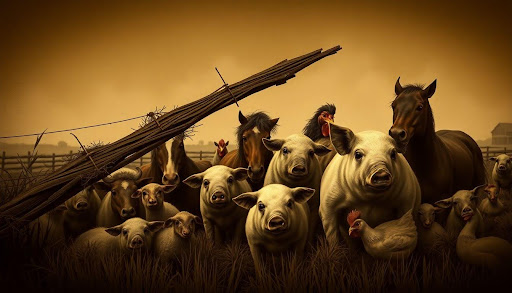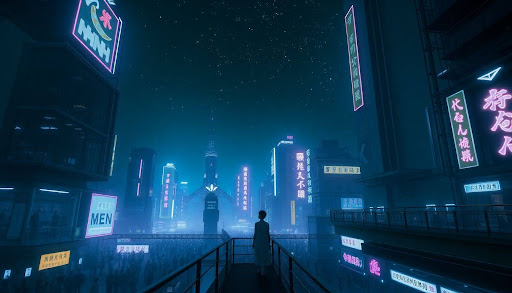Shatter Me by Tahereh Mafi – A Fresh Look at This Dystopian Romance
What if your touch could kill? That’s the haunting reality for Juliette, the protagonist of Shatter Me by Tahereh Mafi. Set in a crumbling dystopian world ruled by a tyrannical regime, this young adult novel blends high-stakes romance, thrilling tension, and a dash of rebellion. Known for its poetic writing style and emotionally intense storytelling, it’s a book that captures the attention of seasoned readers and newcomers alike. Whether you’re here for the heart-pounding romance, the unique prose, or the unforgettable characters, there’s plenty to uncover in this unforgettable start to a bestselling series.
What Makes Shatter Me Stand Out?
Tahereh Mafi’s Shatter Me isn’t your everyday dystopian romance novel. It’s a book that dares to be different, blending a gripping plot with a bold narrative approach. Whether it’s the raw vulnerability of Juliette, the poetic prose, or the deep dive into themes of identity, there’s a lot that makes this story unforgettable. Let’s break down what truly makes Shatter Me stand out.
Juliette’s Extraordinary Power
At the heart of the story is Juliette Ferrars, a girl whose touch is lethal. Imagine not being able to shake hands, hug loved ones, or even accidentally brush against someone without the fear of harming them. This is more than just a cool superpower—it’s a curse that shapes Juliette’s entire existence. The weight of her ability isolates her from the world and fuels the conflict driving the plot.
Her deadly touch doesn’t just differentiate the story; it places her in the center of a high-stakes tug-of-war. The oppressive Reestablishment sees her as a weapon, something to exploit; others view her as a threat. And yet, despite this chaos, Juliette’s power serves as a metaphor. It mirrors her struggle to reclaim control over her life and rediscover her humanity in a system that wants to strip it away. This premise immediately hooks readers, offering both tension and relatability. For those who want a closer look at how Juliette’s power drives the narrative, check out this comprehensive review of Shatter Me.
Tahereh Mafi’s Writing Style
Tahereh Mafi’s writing is… unique, to say the least. Her prose has been described as “purple,” overflowing with vivid imagery and poetic flair. Some readers love it. Others, not so much. But no one can deny that it’s different. The use of strike-throughs in the narrative captures Juliette’s spiraling thoughts. It’s like being handed a key to her psyche—every doubt, every fear, and every repressed emotion is laid bare.
Notably, Mafi’s descriptive language creates unforgettable mental pictures. Sentences like “I am a broken mirror shattering into pieces with no one to hold me together” elevate Shatter Me beyond simple storytelling. For fans of books where the writing itself feels alive, this stylistic choice is a major draw. If you’re curious about the polarizing reception of Mafi’s writing style, you can explore more in this thoughtful analysis on poetic techniques in Shatter Me.
Does the style always work? That depends on the reader. But there’s no denying that it enhances the emotional tone of the narrative, making readers feel like they’re living inside Juliette’s fractured world.
Themes of Isolation and Self-Discovery
Another reason Shatter Me resonates with readers is how it delves into themes like isolation and self-discovery. For much of the book, Juliette is completely alone—both physically and emotionally. Locked away due to her dangerous touch, she develops a deep sense of alienation that many readers can relate to. Who hasn’t felt like an outsider at some point in their lives?
As the story progresses, Juliette’s journey becomes one of reclaiming her voice. She learns to stop letting her touch define her and begins embracing her uniqueness. Themes of self-worth and acceptance shine throughout. In many ways, Juliette’s struggles mirror the types of identity crises we all face, just taken to a dramatic extreme. If you’re interested in these critical elements of Shatter Me, this blog post about the book’s themes provides valuable insights.
This blend of universal concepts and an otherworldly premise ensures that Shatter Me isn’t just thrilling—it’s meaningful. It’s a reminder that even when the world feels against you, there’s always a path toward understanding yourself and finding your place.
Whether it’s the heart-stopping action, the stream-of-consciousness prose, or the deeply emotional themes, Shatter Me offers something completely fresh.
The Characters: Heroes, Villains, and Everything In Between
The characters in Shatter Me are a key reason why this series resonates with so many readers. They aren’t just static archetypes; they’re layered, flawed, and constantly evolving. The relationships they share drive much of the story’s emotional core, creating moments that range from touching to tense. Let’s take a closer look at some of the standout characters who make this dystopian tale so memorable.
Juliette: A Relatable Yet Unpredictable Protagonist
Juliette Ferrars is not your typical heroic lead. At 17, she’s grappling with an extraordinary curse: her touch is deadly. This ability serves as both her greatest burden and eventual strength. From the very start, we see Juliette as deeply vulnerable—she’s been locked away, abandoned by society, and made to feel like a monster. Her internal monologue, expressed through strike-through text, gives readers raw insight into her fractured psyche.
What makes Juliette fascinating is her unpredictability. She’s not an all-knowing, invincible protagonist; she doubts herself constantly but still yearns for meaningful connections in a world that has shunned her. These struggles make her painfully relatable—especially to readers who’ve ever felt like they don’t belong. Her evolution over the course of the novel, from frightened and meek to someone discovering her inner power, is a vital aspect of the storyline, keeping you rooting for her growth.
As Juliette begins to reclaim her autonomy, her character transcends the pity we might initially feel. She becomes a symbol of resilience. For a deeper look at her layered personality, you might find this in-depth analysis of Juliette enlightening.
Adam vs. Warner: The Love Triangle
Ah, the love triangle—an ever-present trope in young adult fiction and one that divides fans of Shatter Me right down the middle. On one side, there’s Adam Kent, the soldier whose kind heart and relentless need to protect Juliette draw you in. On the other, there’s Warner, the manipulative and obsessive leader of Sector 45, who views Juliette’s power as something to control… or admire, depending on how you interpret his motives.
Adam is easy to love. He represents safety and stability in Juliette’s chaotic world. But his overprotective tendencies can sometimes come across as stifling. Warner, in contrast, is polarizing. Some see him as irredeemable in this first book, while others are intrigued by his enigmatic nature. His obsession with Juliette is unsettling, yet there’s something unsettlingly fascinating about his vulnerability that occasionally peeks through.
This dynamic creates a tension-filled romance plotline that raises a question: who should Juliette trust? While Adam embodies the “perfect boy next door” archetype, Warner’s darker allure adds complexity. It’s no wonder readers continue debating this triangle online (curious to unpack it more? See this engaging breakdown of the love triangle in Shatter Me).
For casual readers or hardcore fans, this love triangle doesn’t just add romance—it reveals critical aspects of all three characters. It complicates their relationships in ways that elevate the stakes of the story.
Kenji’s Role as the Comic Relief
While Shatter Me thrives on its deep emotional moments and high-stress conflicts, it would be incomplete without Kenji Kishimoto—arguably the most entertaining character in the series. Kenji serves as the much-needed comic relief. His quick wit and playful banter effortlessly lighten even the tensest situations throughout the novel.
What makes Kenji stand out isn’t just his sense of humor. Beneath his jokes lies a loyal friend who genuinely cares about Juliette and the people around him. He brings humanity to the story, reminding readers that even in the worst of times, there’s room for laughter and connection. Kenji also contrasts wonderfully with Juliette’s often serious and introspective demeanor, offering a breath of fresh air when things feel too heavy.
Some fans even consider Kenji one of the series’ most relatable characters, with his grounded perspective and knack for saying what everyone’s thinking. If you’re looking to explore more about his role in the series, this discussion about favorite Shatter Me characters captures why he’s so beloved.
Ultimately, Kenji’s presence is what rounds out the emotional rollercoaster of Shatter Me. While the stakes remain high and the characters grapple with serious challenges, his humor reminds readers—and the characters themselves—that life isn’t just survival; it’s about finding moments of joy even when everything else feels bleak.
Plot and Setting: A Dystopian Canvas
The world of Shatter Me is more than just a backdrop—it’s a character in itself, filled with tension and contradictions that shape every aspect of the narrative. Tahereh Mafi’s story wouldn’t be nearly as compelling without the dark, oppressive environment that looms over every page. From the barren, lifeless landscapes to the cruel confines of Juliette’s isolation, the setting enhances the story’s urgency and stakes brilliantly.
The Dystopian Backdrop
Imagine a planet stripped of its vitality—gray skies, barren fields, and a society teetering on the brink of collapse. In Mafi’s dystopian world, everything feels cold, hollow, and suffocating, capturing the aftermath of unchecked environmental destruction and societal decay. This grim setting mirrors the harsh rule of an authoritarian regime known as The Reestablishment, which has seized control under the guise of restoring order. But instead of providing stability, they enforce fear, stripping people of their freedoms while exploiting resources at the cost of humanity’s survival.
This dystopian world isn’t just scenery; it amplifies the tension and despair felt by the characters. The population lives under constant surveillance, food is scarce, and hope feels about as real as the desolate ground beneath their feet. The emotional weight of such an environment seeps into every interaction, making the stakes intensely personal for readers.
Even Juliette’s prison cell—a small, windowless room where she is initially confined—serves as a microcosm of this broken world. The walls might be physical, but they reflect a larger societal cage that dictates how characters behave, rebel, or conform. For a broader exploration of the unique challenges presented by The Reestablishment and their impact on the setting, you can check out this detailed guide to the Shatter Me dystopian world.
From Prison to Rebellion
The plot of Shatter Me weaves through a classic arc of suppression to rebellion, with Juliette at its heart. The novel begins in the suffocating silence of her cell, where she has been isolated for 264 days for a crime she didn’t choose: her lethal touch. Even without touching anyone, Juliette is branded a monster by a world too scared to understand her ability.
When Adam Kent, Juliette’s former classmate, becomes her cellmate, the plot takes a sharp turn. Their connection ignites something long dormant within her—the idea that she is more than her curse. Adam is revealed to be working for The Reestablishment, but he harbors his own motives for helping her escape. His arrival sets the stage for a cascade of events filled with danger, betrayal, and surprising alliances.
As the story progresses, Juliette learns that The Reestablishment doesn’t want to destroy her—they want to use her as a weapon. Enter Warner, the enigmatic and ruthless leader of Sector 45, who is disturbingly captivated by Juliette’s power. Warner’s obsession introduces layers of tension, raising moral questions around exploitation and autonomy. These dynamics make it clear: Juliette’s journey isn’t just about survival; it’s about reclaiming control over her own narrative.
The climax of the novel is a masterclass in emotional highs and lows. Juliette transitions from a scared, ostracized girl to someone willing to fight back. She joins a budding rebellion—a group that opposes The Reestablishment, promising not just survival but the possibility of hope. Along the way, shocking plot twists, such as discovering hidden facets of both Adam and Warner’s characters, keep readers glued to the pages. For a spoiler-free synopsis of key plot moments, you might find this recap of Shatter Me particularly helpful.
This arc—from isolation to empowerment—not only drives the story but also reflects the themes of self-discovery and resilience that resonate so strongly throughout the novel. In Juliette, readers see someone rise above the expectations placed upon her, despite the odds stacked against her. It’s a journey as much about rebellion against a cruel regime as it is about finding her place in a broken world.
Critical Reception and Audience Reactions
When discussing Shatter Me by Tahereh Mafi, one thing becomes evident: readers and critics alike have strong opinions. Some praise the book for its creativity, while others claim certain elements missed the mark. The passionate discourse surrounding this novel is a testament to its ability to spark engagement. Let’s break down the key points of contention and admiration.
Polarizing Writing Style
Tahereh Mafi’s writing style is arguably the most debated element of Shatter Me. Her prose is experimental, filled with lyrical metaphors, vivid imagery, and strike-through text. For some, it reads like an emotional rollercoaster that perfectly mirrors Juliette’s internal struggles. Sentences like, “I am a being comprised of letters, a character created by sentences, a figment of imagination formed through fiction”, stick in readers’ minds for their raw intensity.
On the flip side, critics argue that the metaphors can feel over-the-top and unnecessarily dramatic. For instance, there’s ongoing debate about whether the abundance of metaphors detracts from the story. One Reddit user described the writing as “beautiful but sometimes melodramatic,” adding that it “feels like reading a diary with too much flourish” (source).
Still, for fans, Mafi’s style is a defining feature of the book. Her use of strike-through sentences—representing Juliette’s inner turmoil or attempts to suppress thoughts—adds layers to the story that traditional prose wouldn’t. It’s avant-garde, and while it doesn’t work for everyone, it leaves a lasting impression. This review dives into why this choice resonates with some readers while alienating others.
The Love-Hate Relationship with the Characters
Fans and critics have equally hot takes when it comes to the characters. Juliette, as the protagonist, garners a mixture of empathy and occasional frustration. Her evolution is powerful—transforming from a fragile, lonely girl to someone who begins to embrace her strength. Some readers connect deeply with this arc, appreciating its emotional vulnerability. Still, others struggle with Juliette’s initial passivity and self-doubt, feeling it drags the story’s pacing.
Then, there’s Warner. Oh, Warner. As the enigmatic villain with a complicated obsession with Juliette, he’s either adored or despised. To some, he’s a masterclass in morally gray characters, intriguing in a way that keeps readers guessing. To others, his actions are too unforgivable to warrant interest. The phrase “problematic fave” could’ve been coined for him, and debates about his redemption arc flood forums like this Reddit discussion.
Adam, on the other hand, often feels safe and supportive—qualities that appeal to some yet leave others underwhelmed. His dynamic with Juliette can frustrate readers who feel it lacks layers compared to her interactions with Warner. And then there’s Kenji, the undisputed fan favorite, loved for his humor and unwavering loyalty. This character analysis sheds light on why many consider Kenji the glue holding the story together.
Why It Resonates with YA Readers
What keeps Shatter Me relevant years after its publication? Its ability to resonate with young adult readers. On the surface, it’s a dystopian romance laced with action and suspense. Dig deeper, though, and it becomes clear why it’s such a hit.
- Relatable Emotions: Mafi nails the feeling of isolation, insecurity, and self-discovery—a trifecta that many readers relate to during their teenage years. Juliette’s internal battles echo real-life struggles of finding self-worth while navigating a judgmental world.
- Fast-Paced Storytelling: Packed with tension and plot twists, the book rarely gives you a moment to breathe. Its straightforward pace appeals to readers seeking quick, gripping reads.
- Romantic Tension: The love triangle provides endless drama, balancing tender moments with morally complex dilemmas. Romance remains a core appeal for many, with fans picking sides between Team Adam and Team Warner.
Ultimately, Shatter Me hits the sweet spot of delivering escapism while exploring deeply personal themes. Even critics who take issue with certain aspects of the writing or plot admit its enduring appeal to its target audience. For a great breakdown of these elements, check out this reflective review.
Readers may not agree on every aspect, but one thing’s for sure—Shatter Me continues to spark passionate conversations well beyond its final page.
Conclusion
Shatter Me by Tahereh Mafi is a story that polarizes, excites, and sticks with readers long after they turn the final page. Its unique narrative choices, from the poetic writing style to the strike-through introspections, create a deeply emotional journey that some adore while others find challenging. The dystopian setting, layered characters, and intense relationships make this a compelling read for fans of YA fiction who crave both high stakes and heartfelt moments.
If you enjoy stories grounded in themes of self-discovery, isolation, and empowerment, all wrapped in an emotionally charged dystopian world, this book is worth diving into. Whether you fall in love with Juliette’s journey or find yourself caught up in the debate over Adam versus Warner, it’s a book that will have you thinking—and talking—for days.
What about you? Have you read Shatter Me? Share your thoughts and join the discussion!







